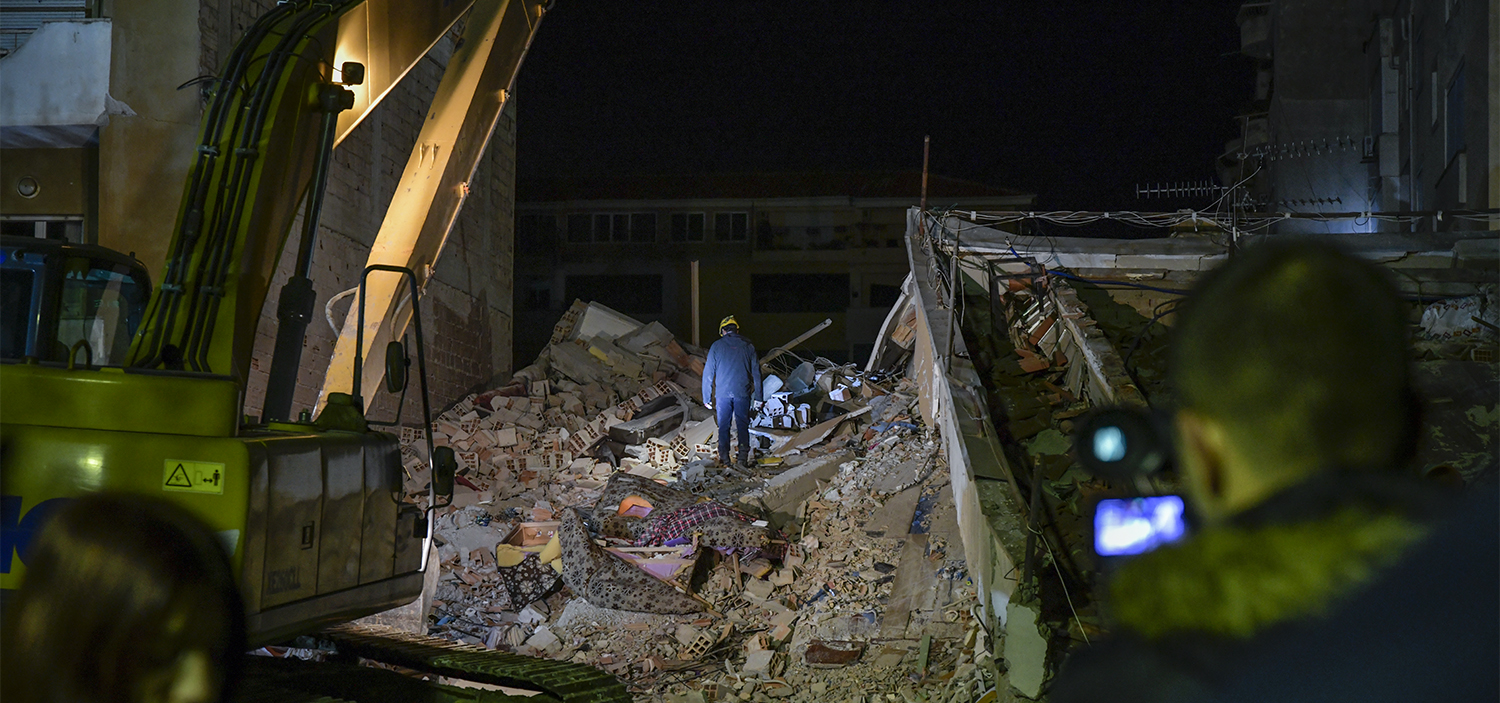
Aftershocks in Albania’s devastated communities
Relief efforts marred by lack of coordination and official inefficiency.
No one would ever dream of having to do that job.
Then, at around noon, the earth shook beneath our feet once again — a 5.2 magnitude aftershock had hit.
The residents without cars were sleeping in their yards or other open spaces, under the sky.

Arian Lumezi
Arian Lumezi is a journalist at K2.0. He holds a master’s degree in International Journalism from Cardiff University, pursued through a Chevening scholarship.
This story was originally written in English.